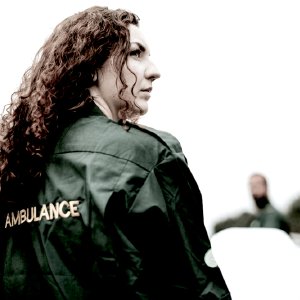10 Reasons Why It’s a Bad Idea to Hold off Addiction Treatment Until after the Holidays

It’s that time of year again, the holidays are almost upon us, and although things may be celebrated a little differently this time around, most people are gearing up for the season. While there are many great aspects about this time of year, there are a few situations that can be a little more challenging for some. One thing, in particular, is the task of trying to get a loved one to agree to go to rehab. Having worked in the addiction field myself for many years, I have often heard people use the holidays as an excuse to try and get out of going to treatment.
Sadly, many families would often give in to these requests under the false notion that they were doing something good. While this is often a tricky situation to be a part of, the truth of the matter is that letting a loved one hold off on going to addiction treatment until after the holidays is a form of enablement. While this may seem harsh, it is true. Addiction is a dangerous condition that should be dealt with as soon as possible.
Here are ten reasons why it isn't a good idea to put off going to rehab until after the holidays.
1. The Increased Chance of Overdose.
Most street drugs these days are laced with the extremely powerful synthetic opioid fentanyl, which has been responsible for an increased amount of overdose deaths. Even drugs like meth and cocaine have often been found to contain fentanyl. This poses an even greater threat because people using stimulants generally do not have an opioid tolerance. Because of this, they are more susceptible to overdose on fentanyl than someone who regularly uses opioids. The sad reality is that drugs these days are more dangerous than ever before, so the longer a person is using street drugs, the more likely they are to overdose.
2. The Increased Chance of Incarceration.

The lifestyle of addiction leads to an increased risk of incarceration. The combination of the fact that many street drugs are illegal to even possess and the criminal activity that is often performed as a means to get that next fix often lead a person to be locked up. The longer a person is caught up in active addiction for the more likely they will be to face criminal charges at some point. While some people are able to use these negative consequences as a catalyst to turn their lives around, why run the risk of having to deal with the legal system if you don't have to.
3. The Increased Amount of Collateral Damage.
One of the saddest things about addiction is the way it destroys not only an addict’s life but the lives of everyone around them. The longer a person is caught up in active addiction, the more damage that will be done to not only their lives but the lives of those who are closest to them. From the health risks, ruined relationships, and burned bridges, the life of active addiction always leaves a path of destruction. The sooner a person is able to get a handle on their addiction the sooner they will be able to stop hurting the people closest to them.
4. The Increased Amount of Stress.
Living with an addiction is stressful. Living with someone who has an addiction is perhaps even more so. Sleepless nights, painful arguments, and countless tears lead to a seemingly never-ending amount of stress. Many times when a loved one finally goes into treatment, their family is finally able to breathe a much-needed sigh of relief.
5. The Increased Possibility of Never Going.
The longer a person puts off going to rehab, the less likely they will be to go. It is really important to get someone into treatment as soon as they agree to go before they have a chance to change their mind. If you give an addict a couple of months to make it through the holiday season before going to rehab, who’s to say that once January rolls around, they will still be willing to go?
6. Do You Really Want Your Loved One to Spend Another Holiday in Active Addiction Anyways?
Holidays spent in active addiction are brutal. It's kind of hard to enjoy the season when you are riding a roller coaster between drunkenness and hangovers or getting high and going through withdrawal. Why not just get it over with and have your loved one go now? You'll both be thankful for it later on.
7. Drama, Drama, and More Drama.

Speaking of the drunken roller coaster, can you say drama? Alcoholism and drug addiction create drama. There is no way around it. That is just the name of the game. Do yourself a favor and skip the drama this holiday season by having your loved one get treatment sooner rather than later.
8. Just Getting It Over With.
When there is something that is difficult to do, the best thing is to just get it over with. Having going to rehab hanging over a person’s head for months isn't going to help their resolve to go. Especially when the best time to go is now.
9. To Stop The Enablement.
Many well-meaning families end up enabling their loved ones to continue with their addiction when they mistakenly think they are helping them. Allowing your loved one to put off life-saving treatment is not helping them get better. It is enabling them to stay the same.
10. Because It’s Simply The Right Thing To Do.
Sometimes the only way an addict can get better is when they are shown a little tough love. Sure it won't be easy for them to spend the holiday season in rehab, but it will be a heck of a lot easier than having them spend it in active addiction.
While this may seem like an oversimplification of the process, it all really comes down to the fact that addiction is a life-threatening condition that should be dealt with as soon as possible. If you had to have heart surgery to save your life, I am sure you wouldn't put it off for two months in order to not have it interfere with your holidays—you would just get it done. When it comes down to it, addiction is no different. The holiday season will still be there next year regardless of whether or not your loved one goes to treatment, but if your loved one doesn't get help, who’s to say they will still be here to enjoy it?
Sources:
Reviewed and Edited by Claire Pinelli, ICAADC, CCS, LADC, MCAP


 ®
®